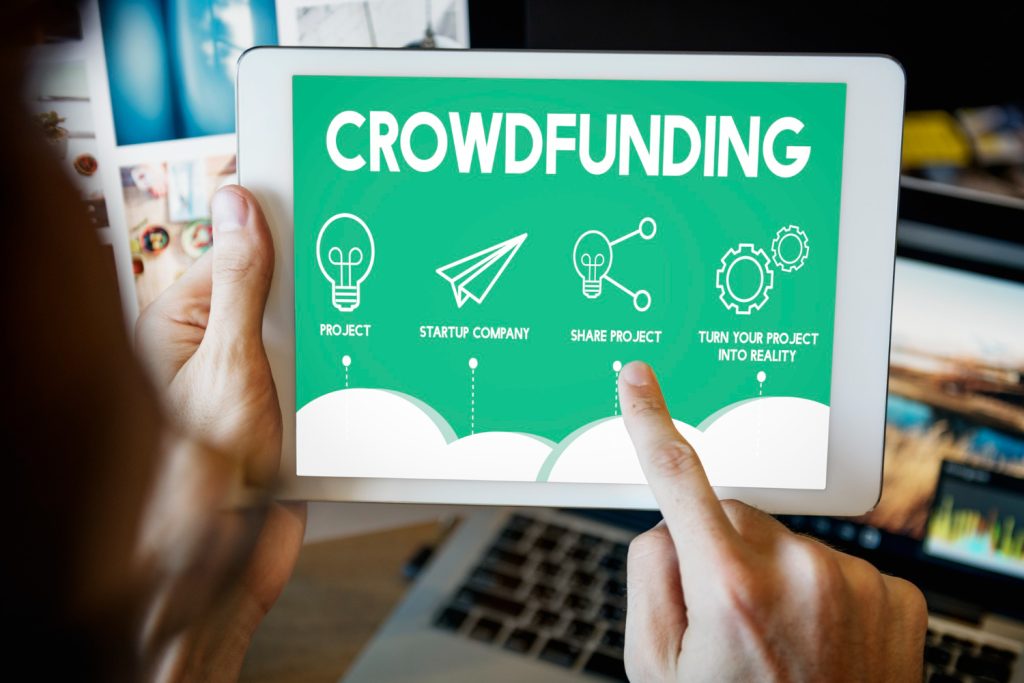Kickstarter helped popularize the concept of reward-based crowdfunding, allowing creators to raise funds directly from supporters in exchange for products, perks, or early access. Since its launch in 2009, it has hosted over half a million projects and helped raise billions of dollars for innovators around the world.
But Kickstarter isn’t a perfect fit for everyone. Strict approval processes, high competition, platform fees, limited category flexibility, and an “all-or-nothing” funding model have made many creators and entrepreneurs seek Kickstarter alternatives in 2025—platforms that are more flexible, community-driven, niche-specific, or better aligned with their funding goals.
Whether you’re launching a startup, publishing a novel, developing a tech gadget, or producing a film, these 10 best alternatives to Kickstarter offer strong tools, supportive communities, and a better chance at crowdfunding success.
1. Indiegogo – The Closest and Most Flexible Alternative
Indiegogo is often mentioned in the same breath as Kickstarter but offers greater flexibility. It supports both fixed funding (all-or-nothing, like Kickstarter) and flexible funding (keep what you raise even if you don’t meet the goal).
Indiegogo also shines with InDemand, allowing successful campaigners to continue raising funds after their campaign ends, and a strong focus on tech, design, and innovation projects.
Best for: Tech gadgets, creative projects, and startups.
Why it’s better than Kickstarter for some: Flexible funding options and longer funding timelines.
2. GoFundMe – Best for Personal Causes and Community Projects
While Kickstarter focuses on creative projects, GoFundMe specializes in personal fundraising—medical bills, education costs, nonprofits, and emergencies.
It’s not reward-based; instead, it’s pure donation-driven crowdfunding. GoFundMe takes no platform fee (only standard processing fees) and makes it easy to raise funds for urgent needs.
Best for: Personal causes, nonprofits, humanitarian campaigns.
Why choose it: No platform fees, very donor-friendly.
3. Patreon – Recurring Crowdfunding for Creators
Patreon flips the traditional crowdfunding model by focusing on subscription-based funding. Fans pledge monthly payments in exchange for content, perks, or exclusive access.
Perfect for creators who produce regular content—such as YouTubers, podcasters, artists, and writers—Patreon helps build a steady, reliable income rather than one-off fundraising.
Best for: Content creators with recurring outputs.
Key strength: Ongoing relationship with fans, not just a one-time campaign.
4. SeedInvest – Crowdfunding for Equity and Startups
If you’re building a startup and want to offer investors equity rather than rewards, SeedInvest is one of the top equity crowdfunding platforms.
Companies must pass a strict vetting process, but in exchange, you gain access to accredited investors and even non-accredited backers under Regulation Crowdfunding.
Best for: Tech startups, fintech, healthtech ventures.
Why it’s unique: Raise large rounds legally with SEC compliance.
5. Crowdfunder – Equity Crowdfunding for Early-Stage Businesses
Crowdfunder connects startups with a network of angel investors, venture capitalists, and corporate investors. It’s more of a startup capital platform than a creative product site.
While traditional Kickstarter campaigns offer a product or reward, Crowdfunder is for serious business funding—helping you exchange equity for capital.
Ideal for: Seed-stage startups, SaaS companies, and growth ventures.
Advantage: Access to professional investors and VCs.
6. FundRazr – Versatile Crowdfunding for Causes and Businesses
FundRazr is a highly flexible platform supporting personal fundraising, nonprofit campaigns, and business funding alike. It offers both “all-or-nothing” and “keep-what-you-raise” models.
You can set up donation-based campaigns, sell products, or offer perks—all without a startup fee.
Best for: Nonprofits, small businesses, and social enterprises.
Why it’s worth trying: Flexible models and excellent tools for storytelling and campaign management.
7. Crowdcube – UK-Based Equity Crowdfunding Platform
Crowdcube is one of Europe’s largest equity crowdfunding platforms. Based in the UK, it allows businesses to raise funds from everyday investors who want to back startups for a share in the company.
It’s been used by well-known brands like Monzo and Revolut in their early stages.
Best for: UK and European startups looking for investment.
What makes it strong: Large investor community and high trust factor.
8. Ulule – Europe’s Crowdfunding Hub for Creative Projects
Ulule is a France-based platform specializing in creative, artistic, and entrepreneurial projects. It works similarly to Kickstarter but offers localization for European markets and more support for community-based projects.
Campaigns on Ulule tend to have higher success rates than Kickstarter, thanks to its hands-on guidance.
Best for: Creators in Europe seeking a supportive launch platform.
Why choose Ulule: Community-focused support and multi-language accessibility.
9. Fundable – Crowdfunding and Investment Hybrid Platform
Fundable allows startups to either run reward-based campaigns (like Kickstarter) or equity crowdfunding (like SeedInvest). It charges a monthly subscription instead of a commission on funds raised.
If you’re serious about raising larger sums and ready to manage investors, Fundable provides tools for both routes.
Ideal for: Serious founders ready for major fundraising campaigns.
Unique feature: Choose between rewards-based or equity-based funding.
10. StartEngine – Democratizing Startup Investments
StartEngine is a fast-growing platform for equity crowdfunding, helping entrepreneurs raise capital from the public. It’s open to non-accredited investors, allowing anyone to invest as little as $100 in promising startups.
It’s backed by celebrities like Kevin O’Leary (Mr. Wonderful from Shark Tank), lending it additional credibility.
Best for: Startups wanting broad public investment.
Why it’s exciting: Crowdfunding meets investing at large scale.
Conclusion:
Kickstarter opened the door to creative crowdfunding, but in 2025, there are more specialized and flexible options than ever before.
-
For tech gadgets or creative projects, Indiegogo is your best bet.
-
For recurring funding and fan support, Patreon is unbeatable.
-
For startup capital and investors, SeedInvest and StartEngine shine.
-
For personal causes or nonprofits, GoFundMe and FundRazr offer a better fit.
Choosing the right crowdfunding platform can mean the difference between struggling and thriving. Know your audience, pick your platform, and build something people want to support.
Would you also like me to create a comparison table or a visual “Kickstarter vs Alternatives” chart you can use in the blog post?







